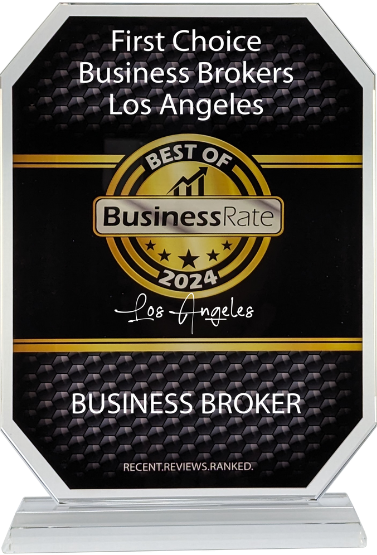8 Steps to Selling Your Small Business in Los Angeles
Selling your small business is a significant decision that requires careful planning and execution. Whether you are preparing to sell your business in Los Angeles or are already in the process, following a structured approach can help you achieve the best outcome. This guide will walk you through eight essential steps to selling your business successfully in Los Angeles.
1. Business Valuation
Understanding your business's value is critical when you're preparing to sell it in Los Angeles. A proper business valuation sets the foundation for pricing and negotiations.
- Understand Different Valuation Methods: Whether using market-based, income-based, or asset-based approaches, it's essential to know which one fits your business.
- Gather Financial Information: Collecting financial statements, tax returns, and other relevant documents will ensure an accurate valuation.
- Hire Professional Valuation Services: Local business valuation experts in Los Angeles, like First Choice Business Brokers, can provide in-depth insights and ensure you're setting a competitive price.
Knowing the worth of your business gives you a solid starting point for discussions with potential buyers.
2. Financial Statements
Clear and accurate financial statements are key to attracting serious buyers and speeding up the sale process. These documents help potential buyers assess your business's financial health.
- Income Statement: Shows your revenue, expenses, and profitability.
- Balance Sheet: This document lists assets, liabilities, and equity and provides a snapshot of your business’s financial position.
- Cash Flow Statement: Tracks cash movement and demonstrates your business’s ability to generate revenue.
- Tax Returns: Offering past tax returns adds credibility to your financial history.
Working with professionals like First Choice Business Brokers Los Angeles ensures your financial records are well-prepared and ready for buyers.
3. Marketing Strategy
A strong marketing strategy can significantly impact how quickly you sell your business. Presenting your business in the best possible light is crucial to attract the right buyers.
- Identify Your Target Audience: Determine if your potential buyers are local investors, other business owners, or entrepreneurs.
- Create a Compelling Business Profile: Highlight your business's unique value proposition, products, services, and customer base.
- Utilize Online Platforms: Leverage online listings like First Choice Business Brokers to increase your business's visibility.
- Networking: Connect with local business owners and professionals who may know potential buyers.
An effective marketing strategy showcases your business’s strengths and attracts interested buyers who align with your goals.
4. Legal Considerations
Navigating legal aspects is critical when selling your business. Ensuring all legal documents and requirements are in order can help you avoid complications.
- Review Contracts: Ensure that contracts are current and clearly define the sale's terms.
- Check Licenses and Permits: Verify that your business holds all necessary licenses and complies with local regulations.
- Liabilities: Be aware of any debts or liabilities affecting the sale.
- Protect Intellectual Property: Safeguard trademarks, copyrights, or patents your business owns.
Consulting with legal experts or a business broker can help you navigate these legalities and finalize the sale smoothly.
5. Sales Process
The sales process involves multiple steps, from preparing your business to finalizing the sale. Here’s how to streamline it:
- Prepare Your Business for Sale: Ensure all aspects of your business, from finances to physical assets, are in order.
- Set a Selling Price: Use your business valuation to establish a fair and competitive price.
- Create a Sales Package: This includes critical business details like financials and operational information.
- Market Your Business: Utilize online platforms and business brokers to reach potential buyers.
- Screen Potential Buyers: Ensure interested buyers are serious and financially capable.
- Conduct Meetings: Meet with potential buyers to discuss your business and answer any questions.
- Receive Offers: Evaluate offers and choose the best based on price and terms.
- Finalize the Sale: Work with professionals to close the deal and complete the required legal documents.
A clear sales process ensures a smooth transition and helps you achieve the best deal possible.
6. Buyer Identification
Identifying the right buyer is crucial to ensuring the future success of your business. Here are steps to help you find the right person:
- Define Your Ideal Buyer: Consider whether your ideal buyer is an individual, investor, or another business.
- Use Business Brokers: Brokers can help you identify serious and qualified buyers.
- Market Your Business: Use targeted marketing to reach buyers who fit your business model.
- Leverage Networking: Local contacts and industry professionals may know potential buyers.
The right buyer is not only about the highest bid; it’s also about finding someone who will continue your business's legacy.
7. Negotiation Tactics
Negotiation is one of the most critical steps in selling your business. A strong strategy can help you get the best deal while ensuring both parties are satisfied.
- Know Your Bottom Line: Establish the minimum price and terms you will accept.
- Build Rapport: A positive relationship with potential buyers can lead to smoother negotiations.
- Be Prepared to Walk Away: Don’t be afraid to walk away if the deal doesn’t meet your expectations.
- Use a Business Broker: Professional brokers like First Choice Business Brokers can help you navigate complex negotiations and achieve favorable outcomes.
Remember, negotiation is about more than just price; it’s about terms and conditions and ensuring a win-win for both parties.
8. Transition Planning
A smooth transition is essential for maintaining the value of your business after the sale. Proper planning can help both you and the buyer succeed.
- Create a Transition Plan: Outline steps for the new owner to take over, including daily operations and key contacts.
- Train the New Owner: Offer training to help the new owner understand the business's operations, customers, and suppliers.
- Communicate with Employees: Keep your staff informed about the sale and what it means for them.
- Maintain Customer Relationships: Introduce the new owner to key customers to build trust and confidence.
Transition planning ensures your business thrives after the sale and helps the new owner succeed.
Wrapping It Up
Selling your small business can be a complex process, but following these eight steps can make it smoother and more successful. Preparing to sell your business in Los Angeles requires thoughtful planning, careful preparation, and working with the right professionals. By taking your time and following a structured approach, you can sell your business for the best price and move forward with confidence.
For expert guidance, consider working with
First Choice Business Brokers Los Angeles to ensure you achieve the best results.
This blog is for informational purposes only and does not constitute financial, legal, or professional advice. Readers are encouraged to consult qualified professionals for personalized advice tailored to their specific circumstances. The author and publisher are not liable for any actions taken based on the information provided in this article.






